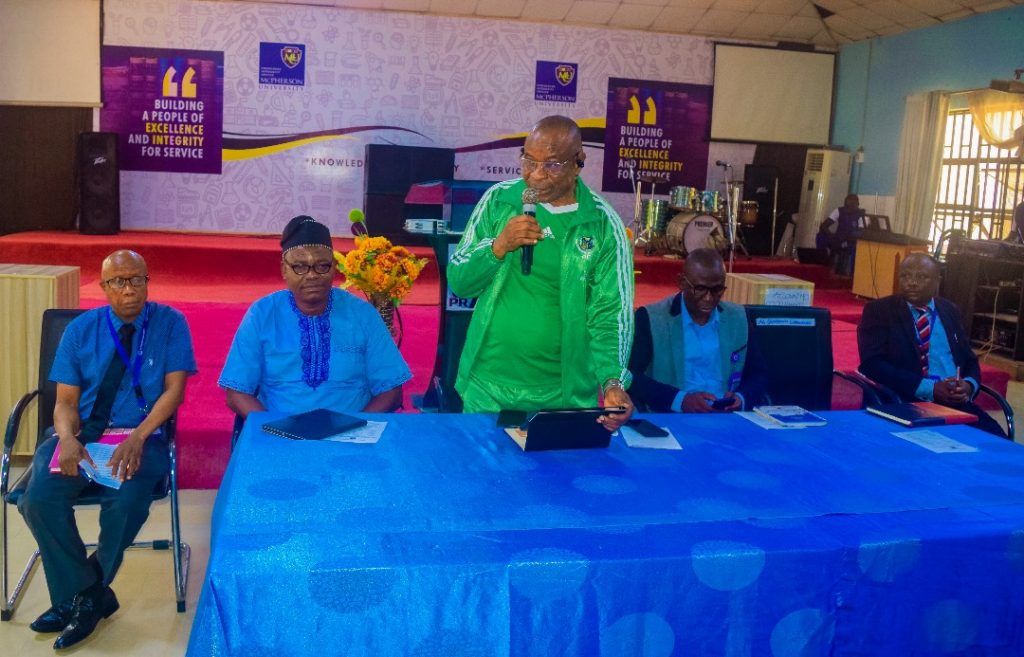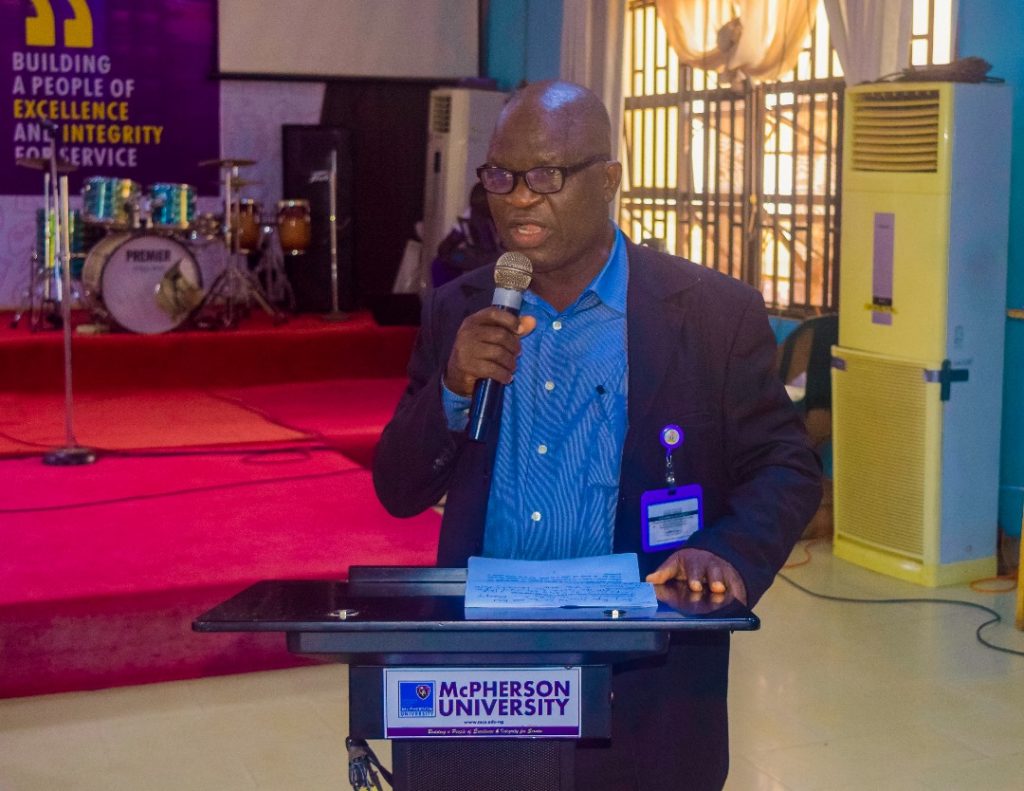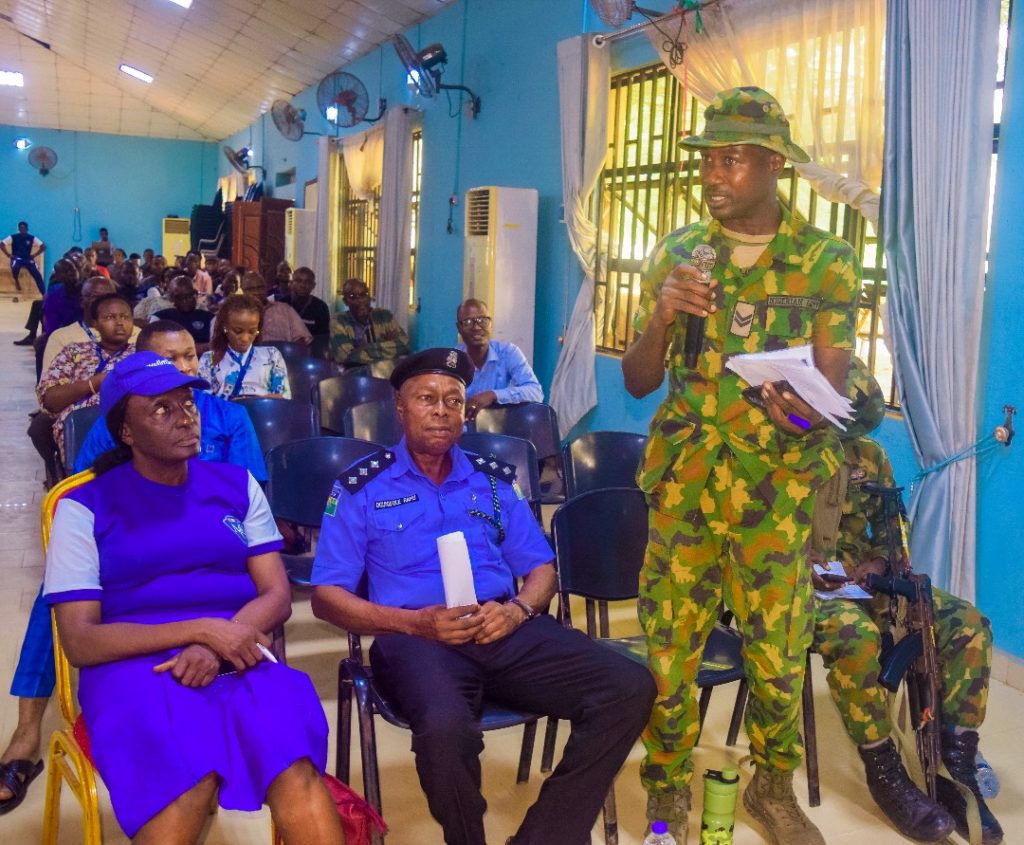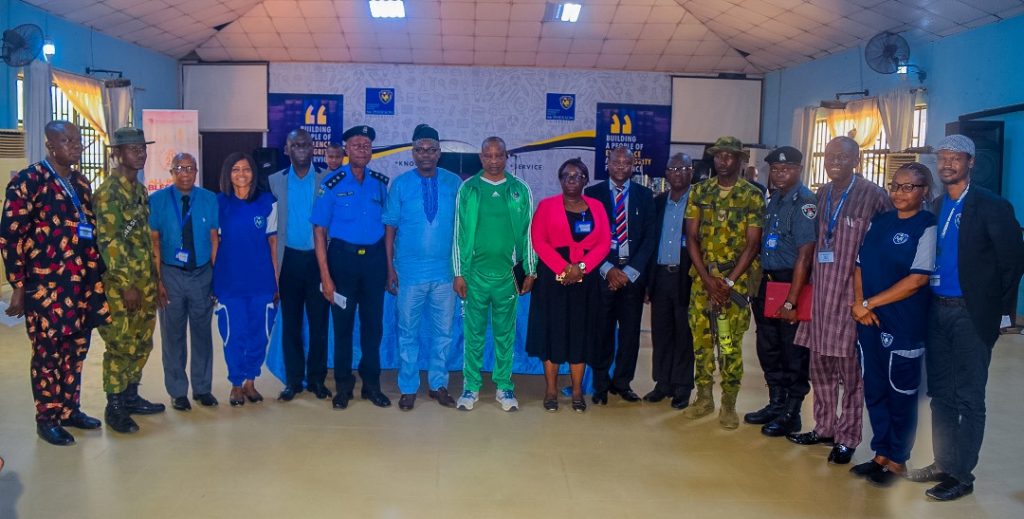McPherson University Tackles Insecurity in Tertiary Institutions… Stakeholders Harp On Collective Vigilance.
Nigeria is today facing the menace of insecurity in almost every sphere, particularly in the education sector. This trend, which has become alarming , led relevant stakeholders in the education sector and security agencies to converged on McPherson University, Seriki Sotayo, Ogun State, on Thursday, February 29, 2024, to address the phenomenal rise headlong under the auspices of the Campus Security Committee of the University.
The seminar with the theme, ” Managing Campus Security: The Roles of Members of Staff “, held at the University Multipurpose Hall.
Speaking at the forum, the Vice-Chancellor of McPherson University, Prof. Francis Igbasan, welcomed the participants to the parley and admonished them to talk on security matters regularly whenever they have current emerging security issues that are “peculiar, novel and capable of affecting our lives as members of the University Community “, adding that the watchdog role is not for security personnel alone, but for every body.






Setting the pace for the discourse, a security expert and don in the department of International Relations of the University, Dr. Paul Ojo, defined security as the protection of lives and properties, noting that the “security and welfare of the people shall be the primary purpose of government” in line with section 14(2) of the Nigeria 1999 Constitution as amended.
He said through collaboration with the citizenry in the areas of intelligence sharing and obedience to the law, government at all levels could curb the rising insecurity in the land.
According to the don, many of the security challenges confronting tertiary institutions in Nigeria today were both internally and externally induced, and that everybody has a responsibility to say something, whenever they see something strange and curious.
He hinted that internally induced security challenges could manifest in form of cultism, drug abuse and addiction, sexual harassment, examination malpractices, kidnapping and internet fraud, while government policies, political interferences, mismanagement of parents’ influence on university management, lack of respect for the culture of the host community and breach of campus security, etc. could trigger externally induced security challenges.
Dr. Ojo pointed out that if these challenges were not properly managed, it could lead to leakages of official information, factionalisation within the system and growing mistrust, among others.
In his presentation, the Senior Security Officer and Head of the Security Unit of the University, CSP Oluwaseyi Lala (NPF Supernumerary Unit) observed that the best way to safeguard the university community from insecurity is to proactively prevent it collectively.
The security officer lamented that the ways and manners that internet fraud, cyber stalking, extortions and kidnapping were gaining momentum among the student population is worrisome, and urged relevant stakeholders to rise to the occasion towards redressing the ugly trend.
Still on the students, he said academic staff has a lot of influence on them in terms of what they teach and do to them, hence they should act in loco parentis to the students in order to shape their attitudes positively, and channel their youthful energies away from criminality.
For a safe and secured campus environment, stakeholders at the seminar agreed that the security of lives and properties is not government business alone, but everybody business and that everybody should be security conscious and vigilant.
In the same vein, staff were advised to be mindful of their utterances in the public domain and on the internet to guard against security breaches either on the campus or outside the campus.
Displaying of ostentatious lifestyles on the internet was discouraged as this could be an avenue for kidnappers and armed robbers to strike.
Regular issuance of security alert, employment of well trained and professional security personnel, provision of surveillance gadgets and collaboration with host communities, etcetera, were also identified as measures to curb insecurity.
Moreso, treating of the students with dignity and respect by their lecturers were canvassed at the seminar, as the ways the students were treated could either make or mar their future and well-being.
The presence and positive contributions of representatives of the Nigeria Army, Nigeria Police Force and Vigilante Group of Nigeria at the parley attested to the much needed collaborative efforts in tackling the menace of insecurity across tertiary institutions in Nigeria.
E-signed:
Sanmi Enigbokan
Deputy Registrar, Information and Public Relations










